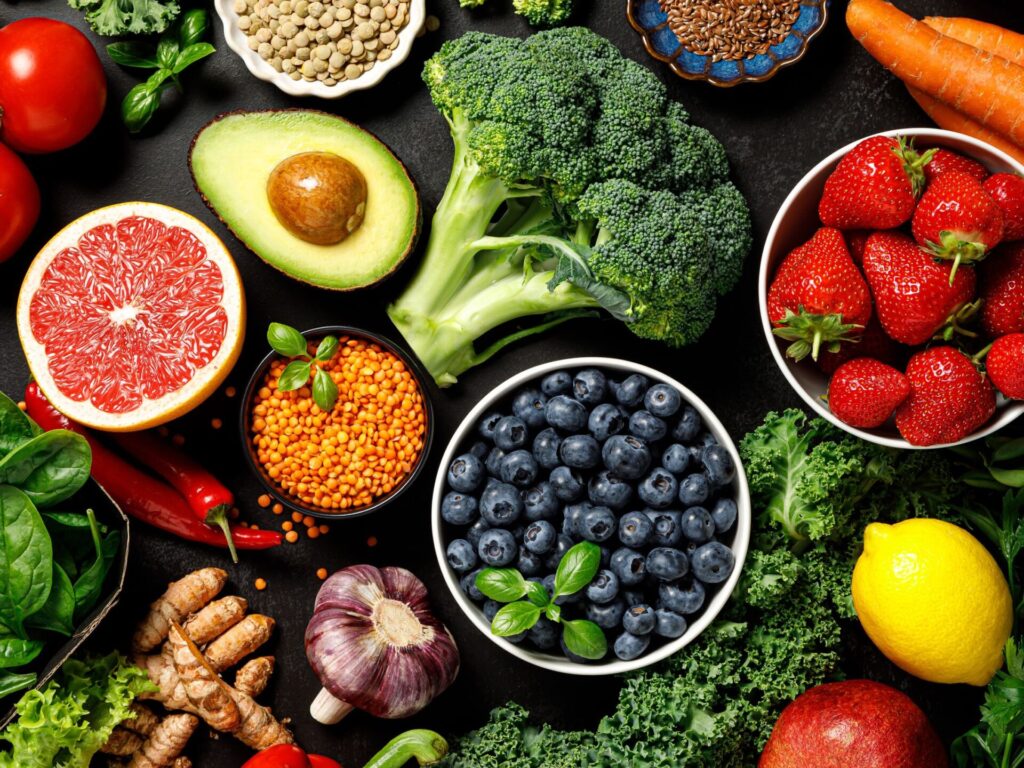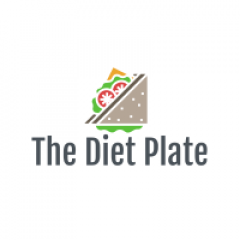
We live in a society obsessed with quick fixes and instant gratification, especially when it comes to weight loss and maintaining a healthy lifestyle. Unfortunately, this has led to the proliferation of numerous diet myths and misconceptions that can sabotage our efforts to achieve optimal well-being. In this article, we will debunk some of the most common diet myths and provide you with evidence-based information to help you make informed choices about your diet and overall health.
Some innovative restaurants not only offer a variety of diet-conscious dishes but also provide an aesthetic experience akin to admiring art tapestries while you dine.

Myth 1: Skipping Meals Helps in Weight Loss
Contrary to popular belief, skipping meals is not an effective strategy for weight loss. In fact, it can have the opposite effect, hindering your progress toward your weight loss goals. When you skip meals, you deprive your body of the essential nutrients it needs to function optimally. Therefore, it’s advisable to consider IV hydration to help you remain refreshed and properly hydrated, supporting your overall well-being.
Skipping meals triggers a series of physiological responses in your body, primarily known as “starvation mode.” When your body doesn’t receive regular nourishment, it interprets this as a sign of food scarcity and goes into survival mode. In response, your metabolism slows down in an attempt to conserve energy for vital bodily functions. This is comparable to your car’s response when it’s experiencing issues, as it adjusts to mitigate the problem. But in the case of car concerns, ensure you address them by visiting a Toronto auto service for proper attention and resolution.
Slowing down your metabolism can be counterproductive for weight loss. When your metabolic rate decreases, your body becomes more efficient at utilizing the calories you consume. This means that you burn fewer calories throughout the day, making it more challenging to create the calorie deficit necessary for weight loss.
Moreover, skipping meals often leads to increased hunger and cravings later in the day. When you finally eat, there’s a higher likelihood of overeating and making unhealthy food choices. This pattern disrupts your body’s natural hunger and fullness cues, making it harder to maintain a balanced and mindful approach to eating.
Instead of skipping meals, focus on consuming balanced and nutritious foods in appropriate portions. Regular and consistent meals help stabilize blood sugar levels, provide sustained energy throughout the day, and support overall well-being. Opt for meals that combine lean proteins, complex carbohydrates, and healthy fats to ensure your body receives the necessary nutrients for optimal functioning. And if you want to stay warm during your meals, you can wear one of your cozy men’s hoodies.
Myth 2: All Calories Are Equal
When it comes to nutrition, not all calories are created equal. While it’s true that weight loss ultimately depends on consuming fewer calories than you burn, the quality of those calories plays a significant role in your overall health and well-being.
The concept of “calories in, calories out” simplifies the complex nature of human metabolism. While the basic principle holds true, different types of foods can have varying effects on hunger, metabolism, and overall health. Nutrient-dense foods, such as fruits, vegetables, whole grains, and lean proteins, offer far more than just calories.
These nutrient-dense foods provide essential vitamins, minerals, and dietary fiber that support optimal bodily functions. They promote satiety, making you feel fuller for longer periods, and provide a steady release of energy throughout the day. On the other hand, foods high in added sugars, saturated fats, and refined grains provide empty calories.
Just like nutrient-dense foods take care of your health, access control systems in Philadelphia can help to keep your property safe. Access control systems use a variety of methods to control who has access to a building or property.
Consuming foods high in added sugars and unhealthy fats can contribute to weight gain and increase the risk of chronic diseases, such as diabetes and heart disease. These foods offer little nutritional value beyond their calorie content and can leave you feeling unsatisfied and craving more food.
We encourage you to buy healthy food and go on a picnic with saddle blankets. This is a great way to enjoy healthy food in a fun and social setting. You can pack a variety of fruits, vegetables, whole grains, and lean protein. And if you have saddle blankets, you can spread them out on the ground and enjoy your picnic in the great outdoors.
To make the most of your calorie intake, prioritize nutrient-dense foods that provide a wide range of essential nutrients. Strive for a balanced diet that incorporates a variety of fruits, vegetables, whole grains, lean proteins, and healthy fats. This approach ensures that your body receives the nourishment it needs while promoting sustainable weight management and overall well-being.
Make sure that your kids eat well before going to math tutoring in Boulder. A good meal will give them the energy they need to focus and learn. And if they’re well-nourished, they’ll be more likely to stay engaged and motivated throughout the tutoring session.
Myth 3: Carbohydrates Make You Fat
Carbohydrates have often been vilified as the culprit behind weight gain. However, it’s important to understand that not all carbohydrates are created equal. Complex carbohydrates, found in whole grains, legumes, and vegetables, are an essential part of a healthy diet.
If you’ve spent all your money on healthy food and still need a place to stay for your next vacation, you may want to consider a vacation rental loan. Vacation rental loans can help you cover the cost of your rental, so you can enjoy your vacation without worrying about money.
Complex carbohydrates are rich in fiber, which provides numerous health benefits. Fiber aids in digestion, helps regulate blood sugar levels and promotes feelings of fullness. These carbohydrates also contain essential nutrients, such as vitamins, minerals, and phytochemicals, that support optimal bodily functions.
The real issue lies in the excessive consumption of refined carbohydrates, such as sugary snacks, white bread, and processed foods. Refined carbohydrates have undergone processing that removes the fiber and essential nutrients found in their whole-grain counterparts. This processing results in quick digestion and absorption, leading to rapid spikes in blood sugar levels. If you have a startup business idea centered around the goal of disproving the notion that carbohydrates make you gain weight, it might be worthwhile to consult lawyers for startup business for professional guidance.
When you consume refined carbohydrates in excess and lead a sedentary lifestyle, your body may struggle to utilize the excess energy efficiently. This can contribute to weight gain and increase the risk of developing chronic conditions like obesity and type 2 diabetes.
Rather than avoiding carbohydrates altogether, focus on choosing whole, unprocessed sources of carbohydrates. Incorporate whole grains, legumes, and a variety of colorful fruits and vegetables into your diet. These complex carbohydrates provide sustained energy, essential nutrients, and dietary fiber, supporting your overall health and weight management goals.
If you own a food production business, you can work with a company for SEO consulting in Colorado Springs to help you improve your website’s ranking in search engine results pages (SERPs). This can help you attract more customers to your business and boost your sales.
Myth 4: Fat-Free Foods Are Always Healthy
While it’s true that excessive consumption of saturated fats can increase the risk of certain health conditions, labeling all fats as bad is a misconception. Our bodies need healthy fats for proper functioning and overall well-being. Fats play crucial roles in maintaining healthy skin, absorbing fat-soluble vitamins, and supporting brain function.
Opting for unsaturated fats, such as those found in avocados, nuts, seeds, and olive oil, can provide numerous health benefits. These healthy fats can help reduce the risk of heart disease, lower bad cholesterol levels, and promote overall cardiovascular health.
If you are working at food delivery and your vehicle is constantly running, it is important to make sure that your transmission is in good working order. A transmission service in Buffalo can help you keep your transmission running smoothly and prevent costly repairs down the road.
However, moderation is key when it comes to fat intake. While unsaturated fats are beneficial, it’s still important to moderate your consumption of saturated and trans fats found in foods like red meat, butter, and processed snacks. These fats, when consumed in excess, can contribute to weight gain, heart disease, and other health problems. If you are struggling to manage your weight or have a serious weight-related health condition, you may want to consider bariatric surgery in Texas. Bariatric surgery is a major surgery that can help you lose weight and improve your health.

Rather than completely avoiding fats, focus on incorporating healthy fats into your diet while practicing portion control. Choose cooking oils and spreads that are rich in unsaturated fats, include sources of omega-3 fatty acids, and be mindful of your overall calorie intake.
By making smart choices and including good fats in your diet, you can stay healthy and manage your weight. Just as you take care of your health, businesses in San Antonio can get a boost from IT services in San Antonio. These services help with technology, similar to how a good diet helps your body. Just like good fats are good for you, a strong IT system helps companies work better and succeed in today’s digital world.
Myth 5: Detox Diets Cleanse Your Body
Detox diets have gained popularity as a means of cleansing the body of toxins and promoting weight loss. However, it’s essential to approach these diets with caution and skepticism. There is little scientific evidence to support the sweeping claims made by proponents of detox diets. If you’re considering trying a detox diet, it’s important to do your research and talk to your doctor first. You should also make sure to have a plan for disposing of the waste products from the diet, such as by hiring a dumpster rental in Greeley.
The human body has sophisticated built-in detoxification systems, primarily the liver and kidneys, which work continuously to eliminate waste and toxins. These organs efficiently process and excrete harmful substances, ensuring the body’s natural detoxification processes are functioning optimally.
Detox diets typically involve severe calorie restriction, fasting, or the exclusive consumption of certain liquids or foods. While these approaches may lead to short-term weight loss and a perceived sense of cleansing, they often lack the necessary nutrients for long-term health and sustainability.
Instead of following restrictive detox diets, focus on nourishing your body with a balanced and varied diet. This will help you feel your best and have more energy, which will be helpful if you want to make money as a content creator. When you’re feeling good and have plenty of energy, you’ll be more productive and creative, and you’ll be able to produce better content. You’ll also be more likely to attract an audience and build a following, which is essential for making money as a content creator.
Remember, a healthy and well-functioning body doesn’t require extreme measures to detoxify. Instead, focus on maintaining a balanced diet, staying hydrated, exercising regularly, managing stress, and getting sufficient sleep to support your body’s natural detoxification and overall well-being.
If you’re looking for a healthy and relaxing environment to call home, consider buying a home in Boca Bridges, a beautiful gated community in Boca Raton, Florida. Boca Bridges offers a wide variety of homes for sale, from single-family homes to townhomes, all with stunning views and access to resort-style amenities. So if you’re ready to detoxify your body and mind, check out homes for sale in Boca Bridges today!
.
Myth 6: Eating After 8 PM Causes Weight Gain
The belief that eating after a specific time, such as 8 PM, directly leads to weight gain is a common myth in the realm of diet and nutrition. However, the timing of your meals and snacks does not play a significant role in weight management as long as your overall calorie intake aligns with your energy needs. After taking care of yourself, you should also take care of your home, such as hiring a roofing company in San Diego to keep your roof in good condition.
Weight gain occurs when there is a sustained calorie surplus, meaning you consume more calories than your body burns over time. This surplus can occur regardless of the time of day you consume your meals. What truly matters is the quality and quantity of the food choices you make throughout the day.
It is essential to listen to your body’s natural hunger and fullness cues, regardless of the clock. Late-night snacking may become problematic if it involves consuming unhealthy, calorie-dense foods in excess. However, if you feel genuinely hungry and opt for nutritious options, such as a small portion of fruits, vegetables, or a protein-rich snack, eating after 8 PM can be part of a balanced and healthy eating pattern.
Instead of fixating on arbitrary time restrictions, focus on the overall composition of your diet and prioritize the consumption of whole, unprocessed foods. Strive to create a balanced eating routine that includes regular meals and snacks, spread throughout the day, to ensure your body receives adequate nutrition and energy to function optimally.
Myth 7: The More You Exercise, the More Weight You’ll Lose
While regular physical activity is essential for overall health and weight management, the belief that more exercise automatically leads to more weight loss is not entirely accurate. Weight loss is primarily determined by the balance between caloric intake and expenditure, commonly referred to as “energy balance.”
However, exercise can still be an effective way to lose weight, especially when combined with a healthy diet. If you are looking for a way to lose weight and improve your overall health, consider hiring a homeschooling tutor in Bettendorf. A tutor can help you create a personalized weight loss plan and provide support and accountability along the way.
Exercise plays a crucial role in expanding calories and contributing to a negative energy balance, which can promote weight loss. However, other factors, such as genetics, metabolism, and dietary choices, also influence weight loss outcomes.
It’s important to recognize that exercise alone cannot compensate for an unhealthy diet or poor eating habits, much like how just reading one book doesn’t make you an expert. You can’t out-exercise a poor diet. Sustainable weight loss is best achieved through a combination of regular physical activity, a balanced and nutrient-rich diet, and adopting healthy lifestyle habits, just as individuals like Cheyanne Mallas emphasize the significance of a holistic approach to well-being
Aim to incorporate a variety of exercises into your routine, including both cardiovascular exercises and strength training. Cardiovascular exercises, such as walking, running, or swimming, can help burn calories and improve cardiovascular health. Strength training exercises, such as weightlifting or bodyweight exercises, can help build lean muscle mass, which contributes to a higher metabolic rate and improved body composition.
Remember, the goal should not solely focus on weight loss. Regular exercise offers numerous other health benefits, including increased energy levels, improved mood, enhanced cardiovascular health, and better overall fitness. Strive for a balanced approach that includes both physical activity and healthy eating habits to support your long-term well-being.
n case you would like to make a short movie related to this topic, you could take some filmmaking courses to learn how to tell a story and capture the beauty of fitness. There are many great filmmaking courses available online and in person, so you can find one that fits your budget and learning style.
Myth 8: Low-Fat Diets Are the Best for Weight Loss
Low-fat diets were once promoted as the ultimate solution for weight loss. However, the understanding of dietary fat and its impact on health has evolved significantly. It is now recognized that the type of fat consumed and overall diet quality matters more than simply reducing fat intake. If you’ve just arrived in Belgrade and would like to visit some restaurants with healthy dishes, you can rent a car from EKO rent a car in Belgrade.
While it’s true that excessive consumption of saturated fats, commonly found in foods like red meat and full-fat dairy products, can increase the risk of certain health conditions, labeling all fat as bad is an oversimplification. Our bodies require healthy fats for proper functioning and overall health.
Healthy fats, such as monounsaturated and polyunsaturated fats, are found in foods like avocados, nuts, seeds, fatty fish, and plant oils. These fats offer numerous health benefits, including supporting brain function, promoting healthy skin, and reducing the risk of heart disease.
Instead of focusing solely on reducing fat intake, strive for a well-balanced diet that includes a moderate amount of healthy fats. Incorporate a variety of nutrient-dense foods, such as fruits, vegetables, whole grains, lean proteins, and healthy fats, to provide your body with the essential nutrients it needs while promoting sustainable weight management and overall health. If you find yourself locked out of your car, you can always call a car lockout service to help you get back in.
Myth 9: Eating Small, Frequent Meals Boosts Metabolism
The idea that eating small, frequent meals throughout the day can boost metabolism and aid in weight loss is a persistent myth. While meal frequency can affect some individuals’ satiety levels and may have minor impacts on energy expenditure, it has minimal overall influence on metabolic rate or weight loss outcomes.
The most crucial factor in weight management is the total number of calories consumed throughout the day compared to the number of calories burned. Whether you eat three larger meals or several smaller meals, the key is to maintain an overall energy balance that supports your weight goals.
Avoid keeping your food away from the floor because during floods it could get destroyed. Also, if you experience water damage in your home, be sure to contact a professional company for water damage restoration in Charlotte to help you get your home back to its pre-loss condition.

It’s important to listen to your body’s hunger and fullness cues and establish an eating pattern that works best for you. Some individuals may find that eating smaller, more frequent meals helps them maintain stable blood sugar levels and prevents overeating. Others may prefer larger meals with longer intervals in between. The choice ultimately depends on your personal preferences and lifestyle.
Camping in nature could also benefit your health and metabolism, so if you’re looking for a change of pace, consider renting a camper in Key West. There are many different types of campers for rent in Key West, so you can find one that’s perfect for your needs. And with so many beautiful places to explore in the Keys, you’re sure to have a memorable camping experience.
Focus on consuming a balanced diet that provides adequate nutrition, regardless of the number of meals you consume each day. Emphasize the quality of your food choices, portion control, and mindful eating practices to support your overall health and weight management efforts.
Myth 10: Drinking Water Helps You Lose Weight
Drinking water is undoubtedly essential for overall health and well-being, but the notion that it directly leads to weight loss is a misconception. While adequate hydration is crucial for maintaining proper bodily functions, it is not a magic solution for shedding pounds.
Water can support weight management in several indirect ways. Firstly, staying hydrated can help regulate appetite and prevent overeating. Sometimes, thirst can be mistaken for hunger, leading to unnecessary calorie consumption. By drinking water throughout the day, you can ensure that your body’s hydration needs are met, potentially reducing excessive snacking or overeating.
Additionally, drinking water instead of sugar-sweetened beverages can significantly reduce calorie intake. Sugary drinks are often high in empty calories and can contribute to weight gain when consumed in excess. Opting for water or unsweetened beverages can help lower overall calorie consumption and support weight management.
However, it’s crucial to note that water alone cannot replace a healthy, balanced diet and regular physical activity when it comes to weight loss. It is an essential component of a healthy lifestyle, but it works best in combination with other healthy habits.
To support your weight management goals, focus on a comprehensive approach that includes a balanced diet, regular exercise, adequate sleep, and stress management. You can also get involved in your child’s school fundraiser to help them reach their goals. There are many different types of school fundraisers, such as bake sales, car washes, and even talent shows. By participating in a school fundraiser, you can help your child learn the value of hard work and teamwork, and you can also make a difference in their education.
Myth 11: Supplements are the Key to Weight Loss
In the pursuit of weight loss, many individuals turn to dietary supplements, hoping for a quick fix. However, the reality is that supplements are not a magic solution for shedding pounds. While some supplements may have minor effects on metabolism or appetite, they are not a substitute for a healthy diet and lifestyle.
Weight loss supplements often make bold claims, but the scientific evidence supporting their efficacy and safety is often limited. It’s crucial to approach supplements with caution and skepticism, as they are not regulated in the same way as medications. The quality and safety of these products can vary significantly, and they may interact with medications or have adverse effects on health.
Rather than relying solely on supplements, focus on adopting a balanced and nutritious diet. A diet rich in fruits, vegetables, whole grains, lean proteins, and healthy fats provides the necessary nutrients for overall health and supports sustainable weight management.
If you are considering using supplements, it’s essential to consult with a healthcare professional or a registered dietitian. They can provide guidance tailored to your individual needs and help you make informed decisions regarding supplement use.
Myth 12: Eating Late at Night Causes Weight Gain
The belief that eating late at night automatically leads to weight gain is another common myth surrounding dietary habits. While late-night snacking can contribute to weight gain if it involves excessive calorie consumption, weight management is ultimately determined by the balance between calories consumed and calories burned, regardless of the time of day.
It’s essential to understand that the body’s energy balance operates over a more extended period, such as a day or a week, rather than specific time frames. The total calorie intake and expenditure throughout the day are what truly matter in the context of weight management.
That being said, certain factors associated with eating late at night can potentially contribute to weight gain. Late-night snacking often involves mindless eating, where individuals consume high-calorie, processed foods while engaging in sedentary activities, such as watching television.
Additionally, late-night eating can disrupt sleep patterns, as the body is busy digesting food instead of preparing for rest and recovery. Poor sleep quality and inadequate sleep duration have been associated with weight gain and an increased risk of obesity.
To promote weight management and overall health, it is advisable to practice mindful eating and establish regular mealtimes throughout the day. However, if you find yourself genuinely hungry at night, focus on making nutritious choices and opt for light, satisfying snacks that align with your dietary goals.
Remember, a well-rounded approach to weight management involves not only considering the timing of your meals but also paying attention to the overall quality and composition of your diet, portion control, and regular physical activity.
By dispelling these diet myths, you can make more informed choices about your nutrition and create a sustainable approach to healthy eating. Staying well-informed is essential in various aspects of life, whether it’s about food or even delving into intricate topics such as Commodity trading courses. Remember, everyone’s journey is unique, and it’s important to consult with healthcare professionals or registered dietitians for personalized advice based on your specific needs and goals.
